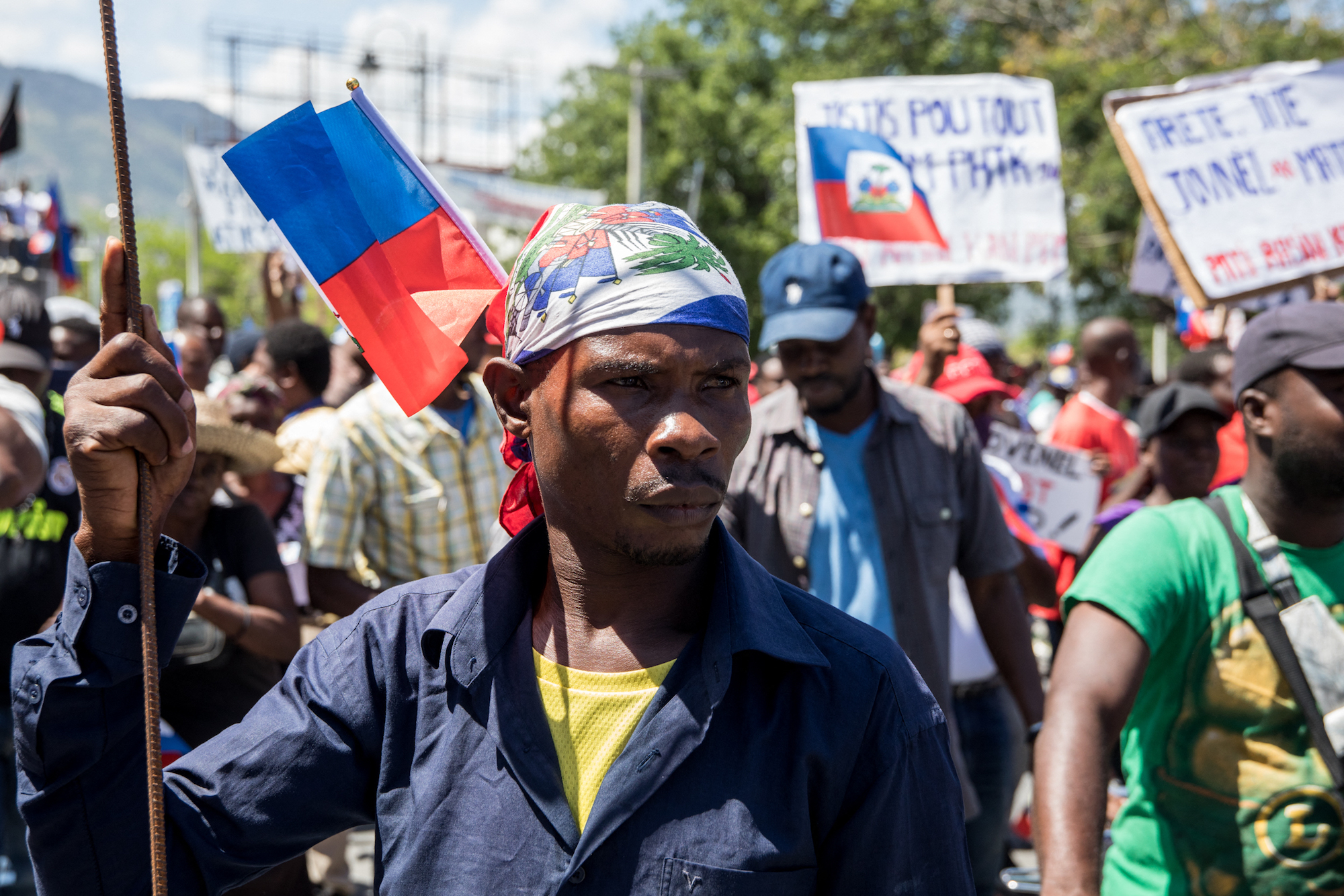
The death of Haitian president Jovenel Moise is the latest in a long institutional crisis
The assassination only adds to the instability and grave institutional crisis experienced in the country since before 2010's devastating earthquake.
The assassination of the President of Haiti, Jovenel Moise, in the early hours of Wednesday, July 7, comes amid a long social and institutional crisis in the poorest country in North America.
While the countries of the region and world leaders expressed solidarity with Haitians and condemned the attack, the country is in a state of siege, as its borders and airport are closed.
"The alleged assassins of President Moise intercepted by the Police in Pelerin shortly before 6 pm," announced the Secretary of State for Communication, Frantz Exantus via Twitter.
It was also learned that First Lady Martine Moise, who was seriously injured in the attack, was transferred to Miami for medical attention.
Throughout the course of Wednesday, the leaders of different countries and international organizations repudiated Moise's assassination.
"We are shocked and saddened by the horrific assassination of President Jovenel Moise and the attack on First Lady Martine Moïse of Haiti," President Joe Biden said in a statement.
UN Secretary General Antonio Guterres also condemned the assassination and called on "all Haitians to preserve the constitutional order, stand united in the face of this horrible act and reject all violence," through his spokesman, Stéphane Dujarric.
Neighboring Dominican Republic closed its borders with Haiti once the news of the attack became known. Through Twitter, Dominican president, Luis Abinader, said that "this crime is an attack against the democratic order of Haiti and the region. Our condolences to their families and to the Haitian people."
The Organization of American States, OAS, condemned "in the strongest terms the assassination," and described what happened as an affront "to the whole community of democratic nations" of the region.
RELATED CONTENT
The presidents of Colombia, Mexico, Chile, Argentina, Cuba and Venezuela, among others, also repudiated the assassination of the Haitian president.
The assassination only increases instability in a country experiencing a serious institutional crisis that began even before the earthquake that devastated the country in 2010, which killed more than 300,000 people.
Haiti is the poorest and most unequal country in Latin America, with 60% of its population living in poverty, according to World Bank figures in 2020. It also holds the record for having the most presidents on the continent: 20 in the last 35 years.
In recent months, fighting between gangs and armed groups has increased insecurity rates, and according to a UN report, some 5,000 people were displaced due to violence in the first days of June.
Moise, a prosperous businessman who came to power in 2017, had a controversial tenure. His election was postponed due to alleged fraud, which led him to rule for another year (until 2022) against different organizations in his country.
His assassination took place two months before the presidential elections called for on Sept. 26, during which he had also called for a referendum to approve a new constitution and the possibility of reviving presidential reelection — measures that did not have the support of the opposition or the international community.











LEAVE A COMMENT: